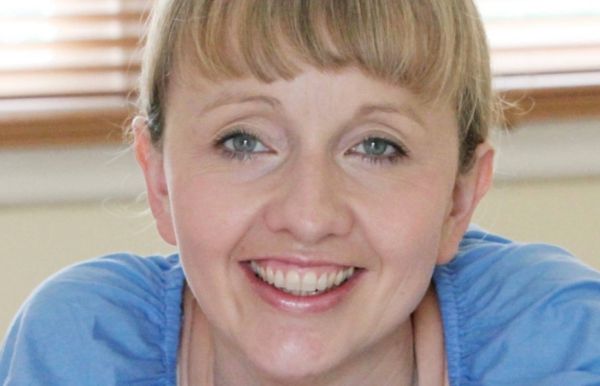Women being arrested and criminalised after reporting violence and abuse, say MPs
An influential cross-party panel of MPs and peers has today (May 18) published new analysis that digs deeper than ever before into the reasons why thousands of women are arrested unnecessarily each year.
The All Party Parliamentary Group (APPG) on Women in the Penal System has examined anonymised arrest data from five police forces in England and Wales as part of a major inquiry investigating what can be done to prevent women being swept into the criminal justice system.
The records, which provide detailed information on more than 640 arrests, reveal the damaging impact on police resources of women being arrested inappropriately, held in custody and released without charge. They include cases of women being arrested while showing signs of distress or when concerns had been raised about their welfare, or where they had been victims of crime themselves.
The data highlights the need for a more nuanced approach to dealing with altercations in the home with evidence that policies and procedures aimed at protecting women from domestic abuse are having unintended consequences, drawing women into the criminal justice system over low-level family disputes that would be better resolved in other ways.
The findings are outlined in the third briefing from the APPG inquiry into arrests of women. The briefing states that almost 100,000 arrests of women are made each year in England and Wales, of which an estimated 37,000 result in no further action.
Jackie Doyle-Price MP, co-chair of the APPG on Women in the Penal System, said: “Thanks to evidence from expert witnesses and detailed data from police forces, our inquiry has shed more light than ever before on the reasons why thousands of women are arrested unnecessarily each year.
“Putting women in contact with services that can help them is a smarter use of police resources that helps to reduce crime. We encourage forces to examine the arrest data they hold to improve practice and protect more women from harm.”
Debbie Abrahams MP, also co-chair of the APPG, said: “We found several examples of good practice where police were taking steps to reduce arrests, but there is more to do to ensure that women are given the support they need without being criminalised. Getting this right would help women to lead happier and healthier lives while enabling police forces to spend more time investigating serious crime.”
And APPG co-chair Baroness Corston added: “Stopping domestic abuse is and ought to be a police priority, but our inquiry has highlighted the need for a nuanced approach that keeps women safe without sweeping them into the criminal justice system. Better management and training would help officers to respond more effectively to low-level conflict in the home and prevent further harm.”
The APPG received arrest data from five police forces in England and Wales, covering areas with different demographic characteristics. They ranged from a force responsible for an ethnically diverse metropolitan area with a population of almost 3million to a smaller force charged with protecting about 600,000 people living in both rural and urban areas.
The records go into great detail and, while the data provided by different forces is not directly comparable, clear patterns of police behaviour can be seen.
One force made nine arrests of women and girls in a single day. Six of these arrests – including three alleged assaults on a partner or ex-partner, an alleged assault between a mother and daughter, and an alleged fight between teenagers – resulted in no further action.
Another force made 17 arrests in one day, 13 of which resulted in no further action. They included the arrest of a teenager who was alleged to have smashed her mother’s crockery.
In another case, police were called to deal with an argument between a mother and daughter in which the daughter had damaged a chair. She was arrested but later released with no further action.
Many arrests of women resulting in no further action were in relation to incidents in the home, often where women had been victims but had lashed out. From the data provided by the five police forces, 221 arrests of women were for alleged incidents flagged as domestic abuse or an alleged incident involving a partner or close family member; more than 60 per cent of them resulted in no further action.
Calling for a more nuanced approach to altercations in the home, the briefing points to research that suggests officers have become much more aware of policies and procedures on domestic violence than in previous years, but are also more likely to be involved in incidents that would not normally require a police response.
Guidance from the College of Policing does not state that arrest is mandatory for domestic violence incidents, but it is presumptive and officers must be able to justify their decision not to arrest. Research has found that officers will, at times, arrest because they fear their senior colleagues will criticise them if they do not.
The briefing calls on police chiefs to encourage officers to recognise when an arrest is disproportionate and instead to focus on resolving low-level family disputes in other ways. It says positive action could include finding a safe alternative place for partners to stay to defuse the situation. Another approach has been piloted by Lancashire Constabulary, in which officers called to alleged domestic violence incidents were accompanied by an independent domestic violence adviser.
The APPG recommends that all police officers should be trained in using restorative solutions to resolve low-level conflict and reduce unnecessary arrests. Only half of officers surveyed by the College of Policing said that their training had taught them how to defuse confrontation.
Understanding that arrest is not an appropriate way to deal with women exhibiting challenging or unusual behaviour, some forces have introduced trauma-informed training for officers and recognise that a woman’s behaviour is often a response to trauma and stress. The College of Policing has issued guidance on conflict management.
The briefing recommends that police forces should conduct case reviews of arrests of women to learn lessons and improve practice, including how officers are deployed when responding to incidents involving women. Forces should examine their data on arrests by gender and race; government figures indicate that Black women are twice as likely to be arrested as white women.







